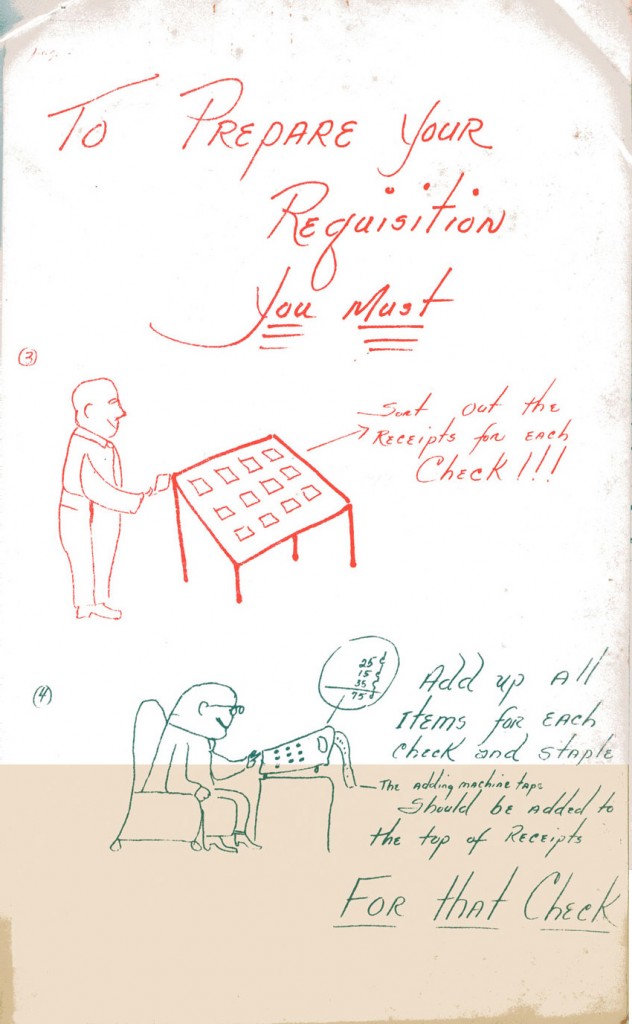How to Get Good Money for Your Center
 Just one of the many delightful aspects of being an independent 501(c)3 organization is having to keep meticulous track of finances. Â We here at ASHP could perhaps use an illustrated manual like the one civil rights activists created in Mississippi to show pre-school center administrators how to file receipts for reimbursement. Â The step-by-step instructions tell educators how to assemble receipts, collect carbon copies of all associated documents, and use the adding machine to make sure the math is correct before sending everything off to a central office in Jackson.
Just one of the many delightful aspects of being an independent 501(c)3 organization is having to keep meticulous track of finances. Â We here at ASHP could perhaps use an illustrated manual like the one civil rights activists created in Mississippi to show pre-school center administrators how to file receipts for reimbursement. Â The step-by-step instructions tell educators how to assemble receipts, collect carbon copies of all associated documents, and use the adding machine to make sure the math is correct before sending everything off to a central office in Jackson.
“How to Get Good Money for Your Center” was created by the Child Development Group of Mississippi. Â Activists in Mississippi adopted a multi-pronged approach to improving the lives of black Mississippians: registering folks to vote, operating Freedom Schools, and teaching black residents how work the channels of power to access the funds and other resources they were entitled to. Â The Mississippi Freedom Movement’s leaders followed the “teach a man to fish” model of education, working with local community leaders and training grassroots activists around the state. Â Though Freedom Summer (1964) workers were young college students from out-of-state, the years-long work of the Movement was mostly performed by local black citizens of all ages. Â It was they who did the hard work of registering voters and taking them to the polls; they also suffered the consequences. Â As the archivist for this manual notes, not only did the pamphlet help African Americans get the funds they were due, it also ensured that pre-school administrators avoided the accounting “irregularities” that white supremacist investigators were all too eager to find. Â Simple “how-to” pamphlets like this are where we see the lofty ideals of the Civil Rights Movement meet the immediate concerns and necessities of organizing on the ground.
I encountered this document while preparing for an upcoming Teaching American History seminar about the Civil Rights Movement. Â The day will focus on the theme of “the local civil rights movement,” helping teachers to investigate the local issues and local activists who made change happen during the 1940s, 1950s, and 1960s.
Happy Tax Season, everyone: make sure to follow all the steps in the correct order!
Last 5 posts by Leah Nahmias
- Teaching "What This Cruel War Was Over" - March 28th, 2011
- State of Siege and Public Memory at Ole Miss - March 25th, 2011


